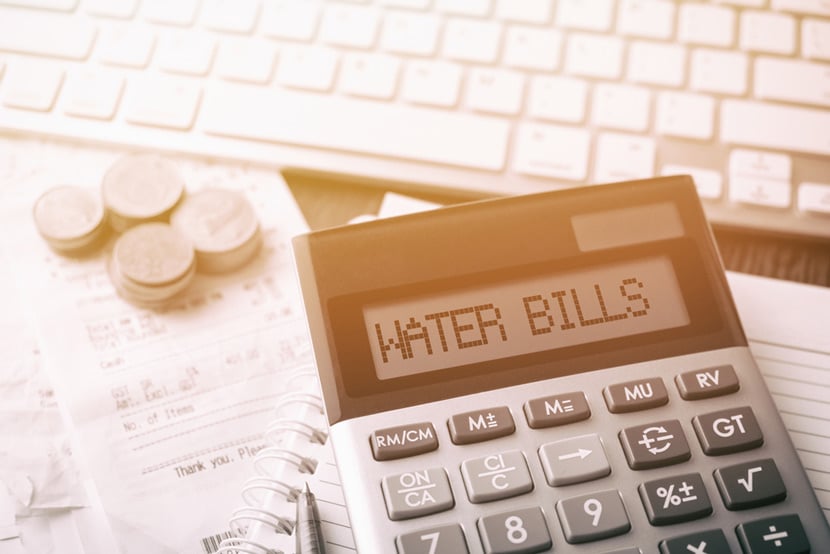Water is something we use every day, often without a second thought. But when the quarterly bill arrives, many households are left wondering why it is so high and whether they are paying more than they should. This guide breaks down the average water bill in 2025 and how to reduce it. We will explore the typical costs involved, what factors affect your bill, and what you can do to save water and money.
What Does Your Water Bill Include
Water bills are made up of both fixed and variable charges. While you can reduce your usage charges, some fixed fees will apply no matter how much water you use.
Common charges include:
Water access charge
This is a fixed fee you pay simply for having access to the water supply. It does not depend on your usage and is charged every billing cycle.
Water usage charge
This charge reflects how much water you use, based on meter readings. The more you use, the more you pay. In many areas, this is billed in tiers. Higher consumption means a higher rate per kilolitre.
Sewerage access charge
Like the water access charge, this is a fixed cost that covers access to the sewerage system. It applies whether you flush once or a hundred times.
In Queensland, councils purchase bulk water from providers like Seqwater and handle distribution. These costs are passed on to residents through your local utility provider.
Average Water Bill in Australia (2025 Update)
Water costs vary between states, but recent figures show a national upward trend. Based on industry insights and pricing updates from regional water providers, here are the average quarterly water bills for 2025.
| State | Average Quarterly Water Bill (2025) |
|---|---|
| Victoria | $202 |
| New South Wales | $215 |
| Western Australia | $220 |
| South Australia | $218 |
| Queensland | $252 |
Queensland remains one of the most expensive states due to rising infrastructure costs, population growth, and increased demand in coastal regions like Brisbane and the Gold Coast.
Water Bill by Household Size
Naturally, the more people living in your home, the more water you are likely to use. Showers, washing, dishes, and gardening can add up fast in larger households.
Here is a snapshot of average water costs by household size in 2025:
| Household Size | Average Quarterly Bill |
|---|---|
| 1 person | $164 |
| 2 people | $218 |
| 3 people | $246 |
| 4 people | $242 |
| 5 or more | $288 |
You might notice that four-person households often pay slightly less than three-person homes. This is because shared usage and habits can vary widely between households.
Why Water Bills Are Increasing
Water costs continue to rise across Australia for several reasons. Understanding these trends can help you plan ahead and reduce waste where it counts.
Key drivers of increased bills:
- Infrastructure upgrades
Councils are investing in pipe replacements, dam expansions, and smart metering systems - Climate conditions
Hotter, drier summers drive up residential water use, especially in coastal Queensland - Inflation and utility fees
As with energy and fuel, inflation impacts the cost of maintaining supply and infrastructure - Population growth
More demand puts stress on existing systems, especially in growing urban and regional areas
Even if your habits stay the same, these background factors can raise your quarterly water bill year after year.
What Affects Your Water Bill
Here are some of the most common influences on how much you pay each quarter:
1. Water leaks
Even a slow drip from a tap or an underground pipe leak can waste thousands of litres each month. If your bills seem unusually high, this could be the reason.
2. Appliance use
Old or inefficient washing machines, dishwashers, and toilets can use more water than necessary. Look for WELS ratings when buying new appliances.
3. Lifestyle habits
Long showers, frequent lawn watering, or filling a pool can spike your bill in a single quarter.
4. Seasonal changes
In summer, households often use more water to cool down, garden, and keep clean. These patterns can double your normal usage.
5. Where you live
Delivery and infrastructure costs differ across regions. For example, residents in the Gold Coast may pay more than those in regional Queensland.
6. Household size changes
Having a guest stay for a month or a new baby in the house can make a noticeable difference in water use.
Ways to Reduce Your Water Bill
You cannot remove fixed costs like access fees, but you can significantly cut your usage charges with a few smart changes.
Maintain efficient plumbing
-
Fix leaks early
Check taps, toilets, and garden hoses for drips. Even a small leak can add $100 or more to your annual bill. -
Book a plumbing inspection
Have a licensed plumber inspect your property every couple of years to find hidden issues.
Upgrade to water-efficient fixtures
-
Low-flow showerheads and taps
These reduce water use without sacrificing comfort. -
Dual flush toilets
Older toilets can use up to 12 litres per flush. Modern models use 3 to 6 litres. -
WELS-rated appliances
Always check for water efficiency labels when replacing dishwashers or washing machines.
Adjust your daily habits
-
Take shorter showers (aim for under 4 minutes)
-
Turn off the tap while brushing your teeth
-
Only run full loads in the dishwasher or washing machine
-
Sweep outdoor areas instead of hosing them
-
Water the garden early in the morning or after sunset
These simple steps can save thousands of litres every month without major effort or cost.
Need Help Reducing Your Water Costs
Oceanside Services provides reliable plumbing support across Queensland, including leak detection, pipe repairs, and water efficiency upgrades. Whether your water bill has spiked or you want to futureproof your home, our licensed team is here to help.
Call 07 5391 3580 today or book online to speak with a local plumber who understands Queensland water systems and how to save you money.



 5 Star Service
5 Star Service 




